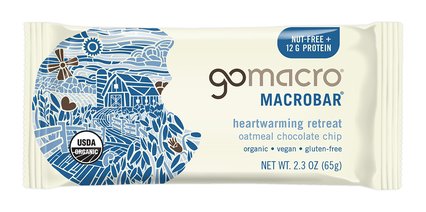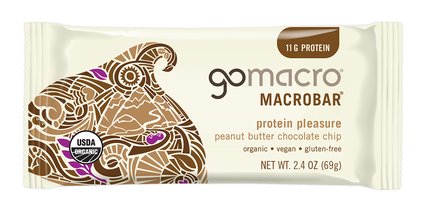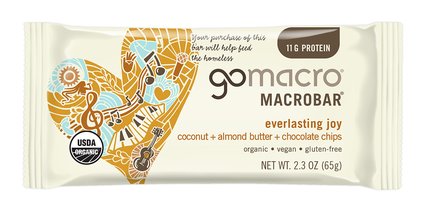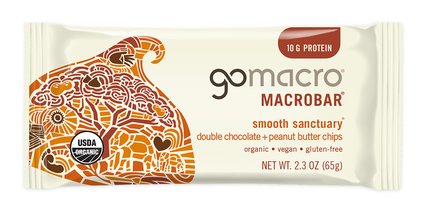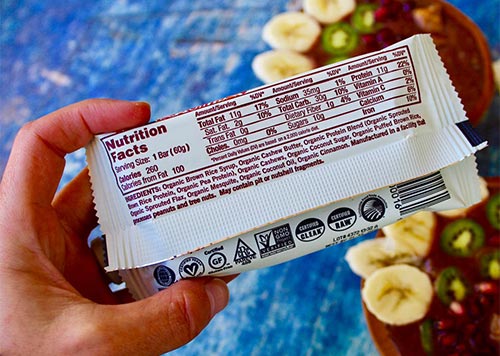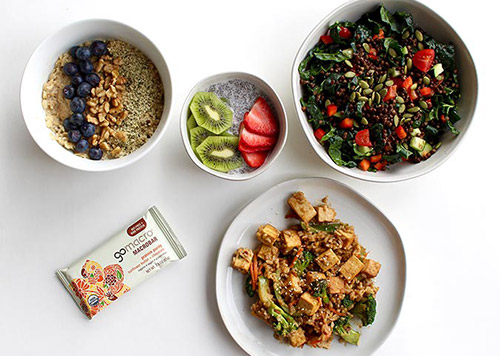How to Start a Plant-Based Diet
While many fad diets have come and gone, there’s one that’s continually linked to improved health outcomes – the plant-based diet. Studies show that eating a plant-based diet can decrease your risk of type 2 diabetes, heart disease, some types of cancer, cognitive decline, and can even aid in reversing coronary heart disease.

While plant-based diets were once considered a niche lifestyle, a 2018 Gallup poll found that 8% of Americans now follow a vegan or vegetarian diet – and vegan or not, more people are understanding the health benefits of a plant-based diet, buying more plant-based foods than ever before.
Retail sales of plant-based foods grew 5x faster than total food sales in the past year. Sales of plant-based meat continue to rise even as animal meat sales decline, with 95% of U.S. grocery stores now offering plant-based meat products. Plant-based dairy alternatives are soon expected to account for 40% of total sales of the category. Together, these stats demonstrate a clear shift in the way people are thinking about plant-based foods.
Besides its well-researched health outcomes, many people also report experiencing lower inflammation, increased energy, and improved athletic performance while following a plant-based diet. That may be why several professional athletes, from triathletes to NFL players, have reported shifting to a plant-based diet in recent years.
Plus, with animal agriculture accounting for 14.5% of global greenhouse gas emissions, removing animal foods from your diet is also a great way to help the environment and advocate for animal welfare.
What is a Whole-Food, Plant-Based Diet?
Following a whole-food, plant-based diet means eating foods that are found in nature, are unrefined or minimally processed, come from a plant, and contain no animal products.
This means meals are centered around veggies, whole grains, fruits, legumes, nuts and seeds, and healthy oils, while meat, fish, dairy, and highly processed foods are avoided.
Contrary to popular belief, you can typically get all the necessary nutrients, protein, fats, carbs, and fiber your body needs for optimal function by eating a whole-food, plant-based diet. However, it’s important to keep in mind that just because a food is vegan doesn’t necessarily mean it’s healthy. (After all, potato chips and sugary sodas are technically vegan.) Most of your daily food intake should come from whole foods with a single ingredient – the plant itself. The rest should be from minimally processed plant-based foods like nut/seed milks, granola, or plant-based nutrition bars.
List of Whole-Food, Plant-Based Foods
Nuts and seeds
Starchy vegetables such as sweet potatoes, squash, and peas
Fruits such as berries, apples, grapes, oranges, peaches, figs, bananas, and kiwi
Whole grains such as oatmeal, buckwheat, quinoa, and rice
Legumes such as chickpeas, beans, and lentils
Plant-based oils such as olive oil or avocado oil
Minimally processed plant-based foods such as tomato sauce, nut/seed butters, pea protein, or tempeh
Plant-Based Diet Tips
There are more plant-based options in grocery stores and restaurants than ever before. Some people like to dive straight in, but if switching cold turkey (or should we say cold tofu?) feels too extreme, it’s okay to start slowly. Try incorporating a few plant-based meals each week or shifting animal products from a centerpiece of your meals to a garnish as you make the transition.
Here are a few other plant-based diet tips to get you started:
If needed, ease into it by getting about 70-80% of your daily calories from plant sources and slowly work your way up to 100%.
An easy meal to start with is breakfast. Opt gluten-free oats topped with nut butter, chia seeds, and fruit or grab a high-protein MacroBar if you’re on the go!
Always fill your plate with about half vegetables and fruit first, then fill in with whole grains and healthy fats.
Try to eat different fruits and vegetables to ensure you’re getting a variety of vitamins and minerals.
Keep it simple; don’t get bogged down by meat alternatives or pricey (but delicious) vegan cheeses unless you want to! The beauty of a plant-based diet is that it consists of mostly ‘basics’ that can be mixed together endlessly.
Read ingredient labels and watch out for less obvious animal products like gelatin, casein, l. cysteine, albumin, and more.
Don’t forget healthy fats for satiety, hormone regulation, brain function, and sustained energy.
Keep it fun and interesting by seeking out delicious plant-based recipes like our vegan chocolate cake.
Show yourself compassion; everyone has accidental slip-ups, so don’t let them keep you from living your values.
Don’t be afraid to ask questions! Talk to your health care provider about supplementation if you’re concerned about your nutrient intake.
GoMacro’s Commitment to a Clean, Plant-Based Lifestyle
We have made it our mission to spread awareness for a balanced, plant-based lifestyle with products that have positive effects on the world. In 2003, our co-founder Amelia Kirchoff was diagnosed with breast cancer, and after a lot of research, she decided to fight the disease with a plant-based macrobiotic diet in addition to a local lumpectomy. In the face of adversity, Jola and Amelia came together, fought the cancer, and Amelia won. During her battle with cancer, Amelia created the MacroBar recipe in her kitchen on the Wisconsin family farm.
Adopting a plant-based lifestyle not only allows us to serve our health better, but it also allows us to serve the planet better. Many people report feeling the positive effects of a plant-based diet every day in the form of clearer skin, improved immunity, better digestion, and increased energy. That’s why GoMacro is committed to making the most delicious, plant-based nutrition bars possible. In addition to being Certified Vegan, all MacroBars are also Certified Organic, Gluten-Free, Kosher, Non-GMO, C.L.E.A.N., R.A.W., and soy-free, so you can feel good about what you’re eating.
